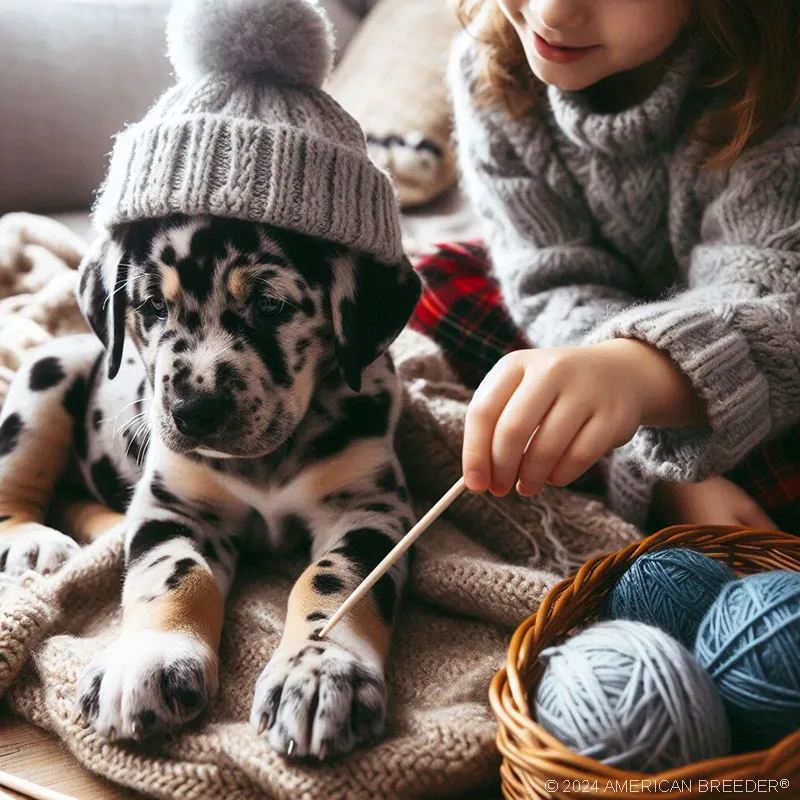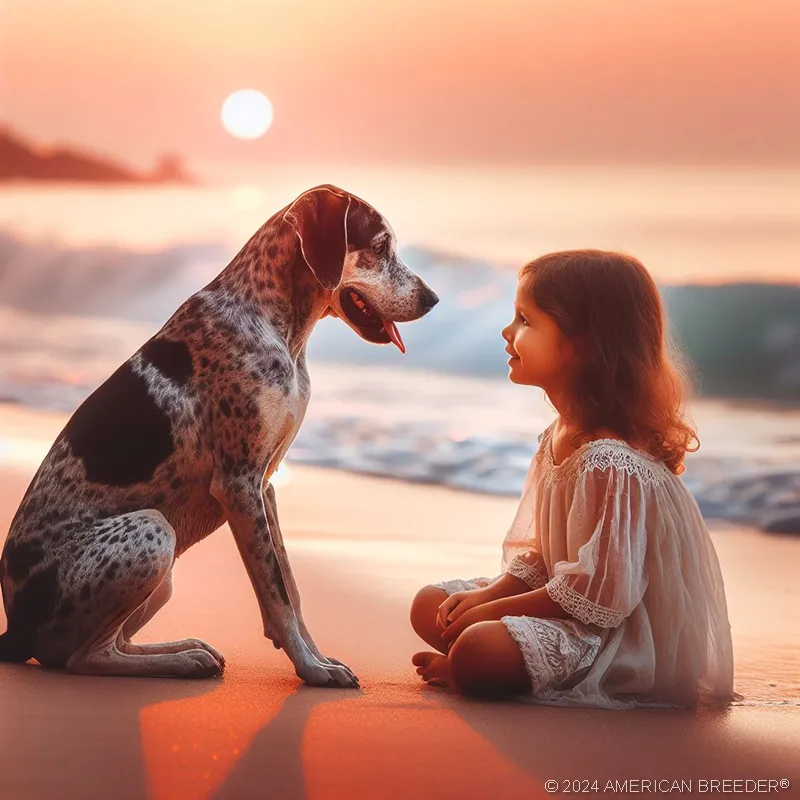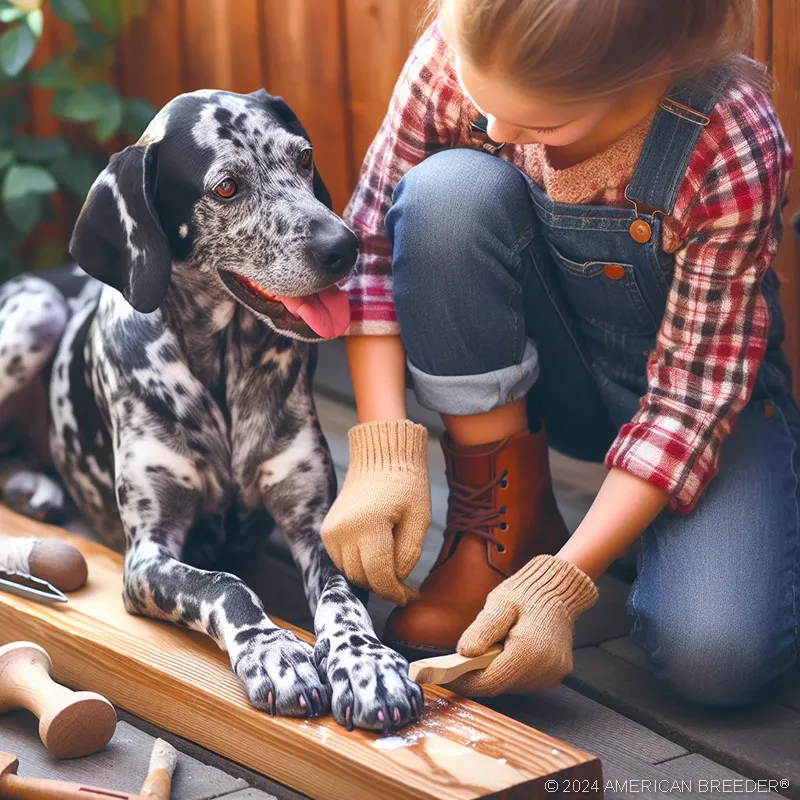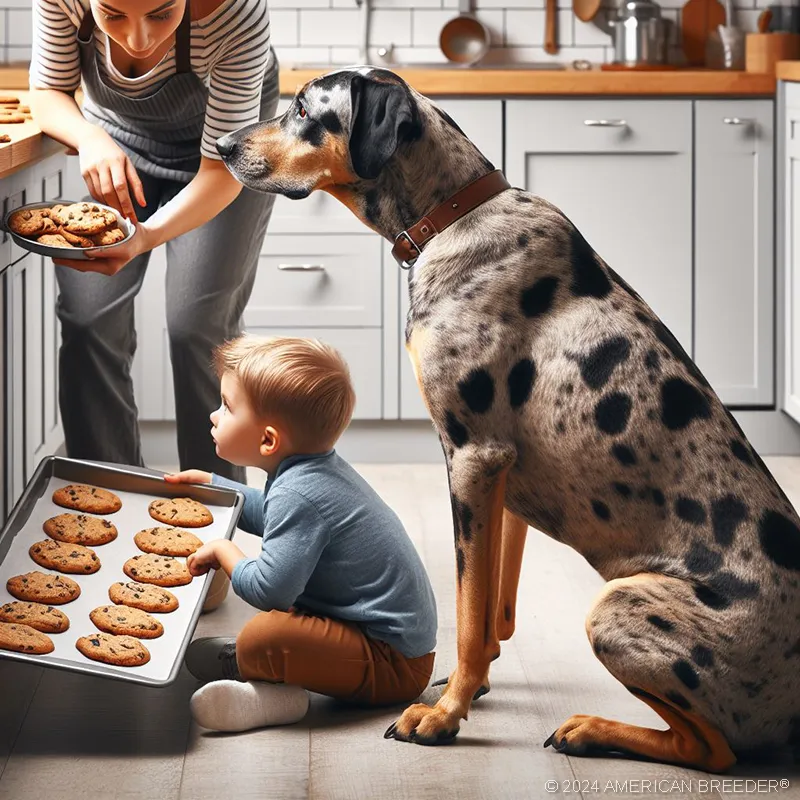Exploring the Legacy of the Catahoula Leopard Dog
The Catahoula Leopard Dog is a unique and fascinating breed that captures the hearts of dog enthusiasts worldwide. Known for their striking coat patterns and versatility, there are a few considerations to keep in mind before choosing this breed. Interestingly, the Catahoula Leopard Dog is also referred to as the Catahoula Cur or Louisiana Catahoula, showcasing its connection to its place of origin.
Breed Background and History
The Catahoula Leopard Dog has a rich history deeply rooted in Louisiana, United States. They were developed by a blend of Native American dogs, Spanish Mastiffs, and Greyhounds brought by European settlers. These dogs were utilized by early settlers for hunting and herding livestock. Over time, the Catahoula Leopard Dog became a significant part of the local culture, often considered a symbol of Louisiana's heritage.
Breed Characteristics
This breed is known for its medium to large size, with males typically weighing between 50 to 95 pounds and females between 40 to 65 pounds. Their physical appearance is quite striking, characterized by a muscular build, a broad head, and expressive eyes. What truly sets them apart is their coat, which comes in a variety of colors and patterns. From stunning merle coats to solid colors, the Catahoula Leopard Dog's coat is always eye-catching. Many individuals also have distinctive leopard-like spots.
When it comes to temperament, the Catahoula Leopard Dog is known for its intelligence, loyalty, and independence. They are highly energetic and require plenty of physical and mental stimulation. This breed thrives in an active environment where they can engage in activities such as hiking, agility training, or herding. While they are generally friendly and affectionate with their families, they can be reserved around strangers. Early socialization is essential to ensure they grow up to be well-rounded dogs.
Trainability and Intelligence
Catahoula Leopard Dogs are intelligent and highly trainable. They have a natural instinct for problem-solving and excel in various dog sports and activities. Training should be conducted using positive reinforcement techniques and consistency. These dogs respond well to mental challenges and appreciate tasks that stimulate their intelligence.
Health and Care
Catahoula Leopard Dogs are generally healthy dogs, but like any breed, they may be prone to certain health issues. Common conditions include hip dysplasia, deafness, and eye problems. Regular veterinary check-ups, a balanced diet, and sufficient exercise are crucial for maintaining their overall health and well-being. Grooming requirements are relatively low, with occasional brushing to keep their coat in good condition.
 Socialization and Compatibility
Socialization and Compatibility
With proper socialization, Catahoula Leopard Dogs can get along well with children and other pets. However, it's important to supervise interactions and teach children how to behave around dogs. They have a natural instinct to herd, which means caution should be exercised around smaller animals. When introducing a Catahoula Leopard Dog to a multi-dog household, a gradual and controlled process is recommended.
Living Arrangements and Environment
While Catahoula Leopard Dogs can adapt to various living arrangements, they are happiest in homes with ample space and a yard for them to explore. They thrive in environments where they can receive regular exercise and mental stimulation. However, with proper exercise, they can adapt to apartment living as well. Due to their short coat, they may require additional protection in extreme climates.
Training and Obedience
Basic obedience training is essential for Catahoula Leopard Dogs, as they are strong-willed and independent by nature. With consistent training, patience, and positive reinforcement, they can excel in obedience and other advanced training activities. Engaging them in specialized tasks that tap into their natural instincts, such as herding or scent work, can provide them with a fulfilling and purposeful outlet for their energy and intelligence.
Before bringing a Catahoula Leopard Dog into your home, it's important to consider the financial responsibilities that come with pet ownership. Initial costs may include adoption fees or the purchase price, vaccinations, spaying/neutering, and microchipping. Ongoing expenses will include high-quality food, grooming, regular veterinary care, training classes, toys, and other supplies. It's also advisable to consider pet insurance or budgeting for unexpected medical costs to ensure the well-being of your furry companion.
Responsible Ownership and Ethical Considerations
When acquiring a Catahoula Leopard Dog, it's crucial to prioritize responsible ownership. Consider adopting from shelters or rescues, as there are often wonderful dogs of this breed in need of loving homes. If you choose to work with a breeder, research and select reputable breeders who prioritize the health and welfare of their dogs. It's essential to avoid puppy mills and support ethical breeding practices that prioritize the overall well-being of the breed.
Legal Responsibilities and Regulations
As a responsible dog owner, it's important to be aware of and comply with local regulations and legal obligations. This includes licensing requirements, leash laws, and vaccination mandates. Understanding these laws helps ensure the safety and well-being of your Catahoula Leopard Dog, as well as the harmony within your community.
There are numerous resources available to assist you in caring for and understanding the Catahoula Leopard Dog. Local veterinarians, trainers, and grooming services can provide expert guidance specific to the breed's needs. Online communities, forums, and educational materials offer a wealth of knowledge and the opportunity to connect with other Catahoula Leopard Dog owners. Additionally, books, websites, and reputable sources can provide further research on the breed's history, training, health, and care.
Conclusion
In conclusion, the Catahoula Leopard Dog is a captivating breed with a rich history and striking appearance. Their intelligence, loyalty, and energetic nature make them a wonderful companion for active individuals or families. However, potential owners should be prepared to provide the necessary training, exercise, and mental stimulation to keep these dogs happy and fulfilled. Responsible ownership, commitment, and love are the keys to creating a lifelong bond with a Catahoula Leopard Dog.
Catahoula Leopard Dog Quick Reference Guide
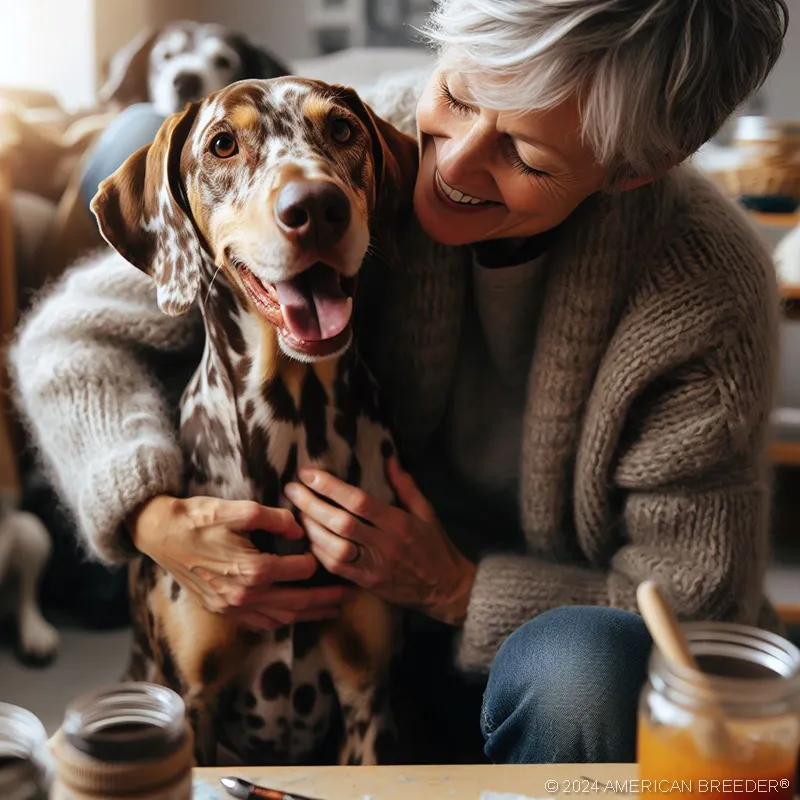 Breed Background: Origin: United States | Breed Purpose: Herding, Hunting, Working | AKC Class: Foundation Stock Service | Year Recognized by AKC: Not yet recognized
Breed Background: Origin: United States | Breed Purpose: Herding, Hunting, Working | AKC Class: Foundation Stock Service | Year Recognized by AKC: Not yet recognized
Appearance: Size: Medium to Large | Weight: 50-95 pounds | Coat Type: Short to medium length | Colors & Patterns: Various coat colors and striking merle patterns | Distinctive Features: Piercing eyes, merle coat, webbed feet
Temperament: Energy Level: 4 | Loyalty: 5 | Friendliness to Pets: 3 | Friendliness to Strangers: 3 | Trainability: 3 | Playfulness: 4 | Frequent Barker: 2 | Chase Instincts: 4 | Sense of Smell: 4 | Drive to Hunt: 5
Health & Care: Health Issues: Hip Dysplasia, Deafness, Eye Problems | Lifespan: 10-14 years | Grooming Difficulty: Low | Exercise Needs: High
Socialization: Interaction with Children: Good, supervised | Interaction with Pets: Can be territorial, early socialization needed | Interaction with Strangers: Cautious | Elderly Compatibility: Moderate | Ease of Training: Moderate
Suitable Living Arrangements: Apartment: No | House: Yes | Rural Area: Preferred | Yard Size Requirements: Medium to Large yard needed
Training & Obedience: Trainability: 3 | Intelligence: 4 | Obedience: 3 | Problem-Solving: 4 | Easily Stimulated: 4 | Focus Level: 3 | Easily Distracted: 3
Financial Planning: Typical Price Range: $500 - $1,500 | Initial Expenses: Puppy vaccinations, supplies | Ongoing Annual Expenses: Food, routine vet care
Breeding: Reproductive Maturity: 12-18 months | Litter Frequency: 1-2 litters per year | Litter Size: 6-12 puppies | Stud Cost: Varies widely | Breeding Challenges: Avoiding genetic health issues, finding suitable mates
Did You Enjoy this Article? Share it and Help Us Spread the Word!
If you found this article helpful, we'd appreciate it if you could share it with your friends or link to it from your website, blog, or group! You can also use the convenient social share tabs on the left side of the screen to instantly share this page to your social media feed. For more ways to support and promote the American Breeder Community, visit our Share & Promote Together page for social media posts and memes you can copy and share. Your support means the world to us!
Disclaimer: The information provided in this article is for general informational purposes only and does not constitute legal, medical, financial, or professional advice. While we strive for accuracy, we make no representations or warranties regarding the completeness, accuracy, reliability, or suitability of the information. Please consult with a professional before making decisions based on the content provided. American Breeder Inc. assumes no responsibility for any errors or omissions or for the results obtained from the use of this information.

